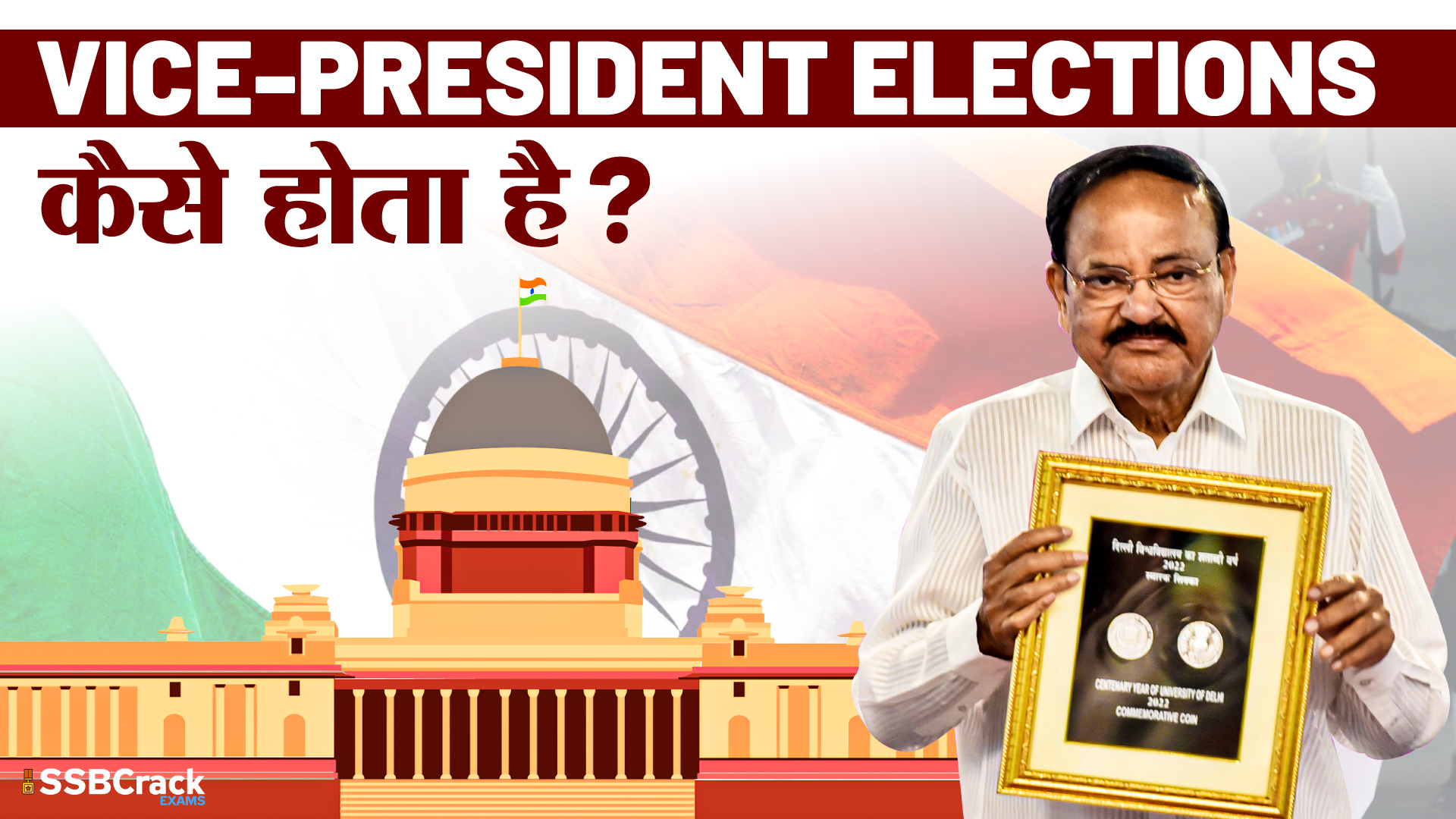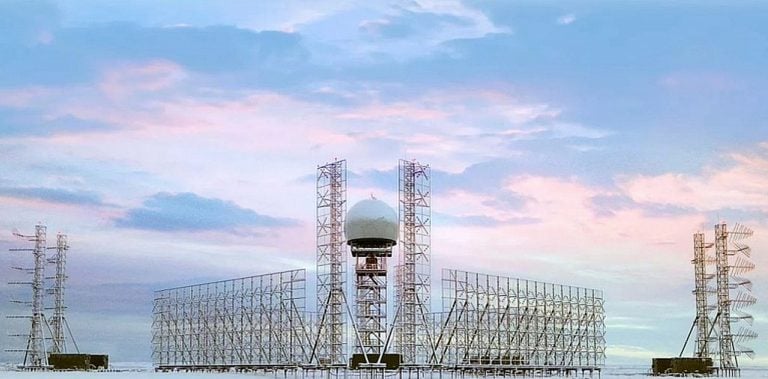Vice President of India is the second highest constitutional office in India and has been held by Shri M. Venkaiah Naidu since 11 August 2017. The Vice-President is elected by an electoral college consisting of members of both Houses of Parliament, in accordance with the system of proportional representation by means of the single transferable vote and the voting in such election is by secret ballot. The Electoral College to elect a person to the office of the Vice-President consists of all members of both Houses of Parliament*.
Vice President Of India: Second-Highest Office In India
- Article 52 – 78 Of Part V Of The Indian Constitution Has The Provision Of The Union Executive, Of Which The Vice President Is The Part. The Union Executive Consists Of The President, Prime Minister, Vice President, The Council Of Ministers, And The Attorney General Of India.
- The Post Of Vice-President Of India Is Modelled On The Lines Of The American Vice-president. In India, Vice-president Has The Second-highest Office In The Country. Article 63 Of The Constitution Mentions The Post Of Vice-president.
Vice President Of India: Related Constitutional Provisions
- Article 63: There Shall Be Vice President Of India
- Article 64: Ex-Officio Chairman Of The Council Of States
- Article 65: Act As President In Case Of Vacancy/ Absences
- Article 66: Election Procedure For Vice President
- Article 67: Term Of Office For Vice President
Vice President Of India: Qualification For The Position
- He Should Be A Citizen Of India
- He Should Have Completed 35 Years Of Age.
- Not Only That But He Should Be Qualified For Election As A Member Of The Rajya Sabha.
- He Should Not Hold Any Office Of Profit Under The Union Government Or Any State Government Or Any Local Authority Or Any Other Public Authority.
Vice President Of India: Term Of The Office
- He Is Entitled To Hold The Office For 5 Years From The Start Of His Tenure. He Can Resign From His Office Anytime By Submitting His Resignation Letter To The President Of India.
Vice President Of India: Power To Conduct Elections
- Article 324 Of The Constitution Read With The Presidential And Vice-presidential Elections Act, 1952, And The Presidential And Vice-Presidential Elections Rules, 1974 Vests The Superintendence, Direction And Control Of The Conduct Of Election To The Office Of The Vice President Of India In The ECI.
Vice President Of India: Election Procedure
- There Is No Direct Election For The Vice-president Of India However, He/She Is Indirectly Elected By An Electoral College. The Election Process Is Quite Similar To That Of The President Of India But The Electoral College That Elects President Is Different From The Electoral College Responsible For The Election Of Vice-president Of India.
- In Electoral College For Vice President, Both Elected And Nominated Members Of Both The Houses Of Parliament Take Part. In Presidential Elections, Nominated Members Are Not A Part Of The Electoral College.
- For Vice President’s Elections, States Have No Role To Play Unlike In President’s Elections Where State Legislative Assemblies’ Elected Members Are A Part Of The Electoral College.
- The Principle Of Election Used In Vice President’s Elections Is ‘Proportional Representation’ By Means Of A Single Transferable Vote. It Is Similar To That Of The President of India.
Vice President Of India: Removal From Office
- Unlike The President Of India Who Can Be Impeached Formally; There Is No Formal Impeachment For Vice President. Rajya Sabha Simply Can Pass A Resolution With A Majority And Lok Sabha Can Pass It. But No Such Resolution May Be Moved Unless At Least 14 Days Advance Notice Has Been Given.
- Unlike The President Of India Who Can Be Impeached On The Ground Of ‘Violation Of The Constitution,’ There Is No Ground Mentioned In The Constitution For The Removal Of Vice President Of India. Supreme Court Decides Election Disputes Related To The Office Of Vice President.
REVIEW QUESTIONS
- Part Of Union Executive Under Part V Of Indian Constitution
- President Of India
- Prime Minister Of India
- Attorney general Of India
- All The Above
ANSWER: D
- There Shall Be a Vice President Of India
- Article 63
- Article 64
- Article 65
- Article 66
ANSWER: A
- Term Of Vice President Of India
- Article 64
- Article 65
- Article 66
- Article 67
ANSWER: D
- Vice President Submits His Resignation To
- Deputy Speaker Of Rajya Sabha
- Speaker Of Lok Sabha
- President Of India
- Chief Justice Of India
ANSWER: C
- Vice President Is Ex-Officio Chairperson Of
- House Of People
- Council Of States
- Parliament
- Union Executive
ANSWER: B
- Maximum Period Till Vice President Serves As President
- 2 Months
- 4 Months
- 6 Months
- 8 Months
ANSWER: C
- Post Of Vice-President Of India Is Modelled On The Lines Of The
- British Vice President
- American Vice President
- Irish Vice President
- Canadian Vice President
ANSWER: B
- 1st Vice President Of India
- Dr. Zakir Hussain
- Sarvepalli Radhakrishnan
- V V Giri
- Dr. Rajendra Prasad
ANSWER: B
- How Many Times Can Vice President Be Re-Elected
- One Term
- Two Term
- Three Term
- Any Number Of Terms
ANSWER: D
- The Vice-President Who Has Served 2 Or More Terms
- Dr. Zakir Hussain
- Hamid Ansari
- V V Giri
- Shankar Dayal Sharma
ANSWER: B
To crack the SSB interview, You can join our SSB interview live classes batch and we recommend you to Enroll SSB INTERVIEW ONLINE COURSE. Trusted by thousands of defence aspirants.
Also Read:
- Who Is Draupadi Murmu? Here Is Everything You Need To Know About The Next Presidential Candidate
- How The President Of India Is Elected? [Fully Explained]
- 16th Presidential Election: Voting, Result, Dates, And 10 Key Take Aways
- The President Of India: Indian Polity Notes For Defence Exams
- Complete List Of Presidents Of India







